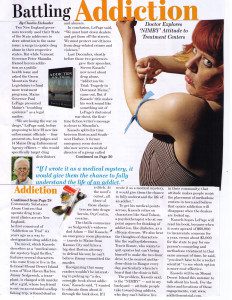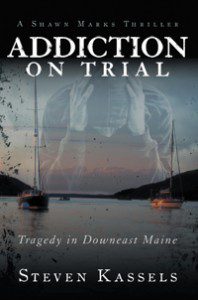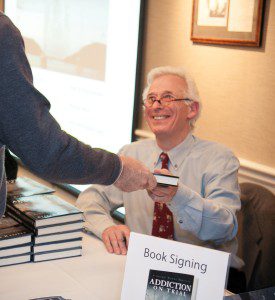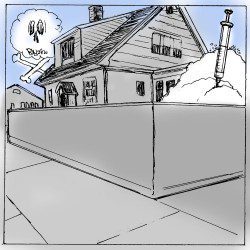Unfortunately, life got ahead of me this summer as I went into a “full steam ahead” mode to get the word out about my book, interspersed with visits from three of my grandchildren. I apologize for not having kept up with my self-imposed schedule of blog postings about my author endeavors and current addiction medicine related matters. To all of you who have read Addiction on Trial, thank you; and if you posted a review on Amazon, an extra thank you 🙂
As you can see from my events listings, I will also be doing some traveling over the next few months. I am looking forward to presenting at the Flight Attendants Drug & Alcohol Conference in Baltimore and at the Union League Club in New York City. I must admit, the event in New York City is going to be a little extra special, as the Union League Club membership has included fifteen Presidents. I am honored to be asked to speak about my book and the disease of addiction; and will be returning to the club in December for their annual book fair. The College of the Atlantic has also chosen my book as part of their curriculum for Psychology courses, and I will be visiting the campus this winter to meet with students, who I am certain will keep me on my toes.
Speaking of students, learning about addiction and related diseases need not stop after formal education. I would like to share with you an article about how the National Basketball Association is educating its players about drugs and to again applaud the dedication and work by Chris Herren.
I hope everyone is having an enjoyable summer, and I again wish to thank all of you who have been so supportive of my book and my mission to entertain while educating through the back door … or maybe the side door 🙂 I will keep you posted on the progress of the next Shawn Marks Thriller, as I am currently working on the sequel, Lost to Addiction. Shawn Marks, that egotistical but likable big shot Boston attorney, will definitely have his hands full as he attempts to defend the son of a wealthy shipping magnate. The adventures with Marks will continue as he travels to Europe and to the seedy underground of drug distribution centers in Guadalajara Mexico to solve this murder mystery. Stay tuned!




 Michigan. He has served as chief of Emergency Medicine at an inner city hospital and currently serves as the medical director and founder of Community Substance Abuse Centers. Dr. Kassels is a member of the American Society of Addiction Medicine and has presented numerous lectures and round table discussions on drug abuse related topics. Dr. Kassels currently resides in Boston, Massachusetts and Southwest Harbor, Maine.
Michigan. He has served as chief of Emergency Medicine at an inner city hospital and currently serves as the medical director and founder of Community Substance Abuse Centers. Dr. Kassels is a member of the American Society of Addiction Medicine and has presented numerous lectures and round table discussions on drug abuse related topics. Dr. Kassels currently resides in Boston, Massachusetts and Southwest Harbor, Maine.